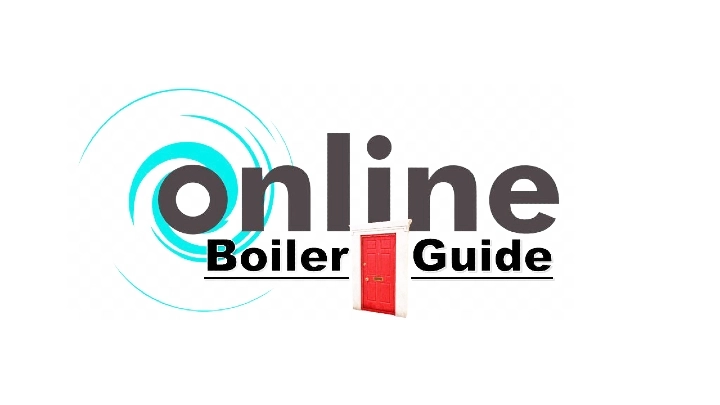

What happens if the central heating pump fails?
A malfunctioning central heating pump can cause a range of problems with your entire heating system, including leaks, excessive noise,
cold radiators, and more.
How do I know if my central heating pump needs replacing?
•A knocking noises.
•If your pump is making a knocking or grating noise, this could be a sign of severe damage inside the component.
•No sound at all.
•Failure to start.
•A leak.
•Failure to heat all radiators.
•Noises coming from the central heating system.
There are few different types of heating pumps available.
These are two speeds, three speed, or the more modern high efficiency pump that will automatically
adjust the speed of the pump according to demand.
What causes central heating pump failure?
Central heating pumps fail for several reasons. They may become clogged up with sludge, the pump impeller may wear, or the pump bearings may fail.
By closing both, you can change the pump without needing to drain the whole system. First disconnect the electrical supply to the pump.
How do you set a Grundfos pump?
Press the button to switch to the setting view.
Release the button for more than 2 seconds.
Press the button for more than 2 seconds and the pump switches to "setting selection".
During a period of 10 seconds, press shortly on the button and the pump switches to the next setting.
What do the numbers mean on Grundfos Pumps?

Answer: The model numbers (or material numbers) as Grundfos refers to represent the inlet/outlet diameter and the head ability in metric.
For example, the Magna 3 65-120 has a 50mm (1.96″) diameter and the head is 120 meters (36′ TDH).
How can I tell if my Grundfos pump is working?
If it's working properly there will be a slight vibration and it will be warm to the touch.
If your pump isn't working, turn off its power supply and get a cloth and a screwdriver. In the centre of the pump, you'll see a silver plate with a slot in it.
Should my Grundfos pump be hot?
Most Circulator pumps are generally used to circulate hot water.
The temperature of the pumped medium is transferred to the pump, and it is normal for the pump's surface to be warm or even hot.
How do I adjust my central heating pump?
• Open all radiator valves.
•Set the thermostat to maximum.
•Set the speed to maximum.
•Wait 10 minutes.
•Turn the speed to minimum.
•Wait for 20 minutes.
check to see if the radiators are hot
If yes, leave the setting.
Do heat pumps work with radiators?
Yes. Heat pumps can be used to heat buildings either with underfloor systems, with radiators or a mix of both.
While underfloor systems are often used on lower floors, it might be that your preferred choice for heating upstairs is radiators.
How much bigger do radiators need to be for a heat pump?
As a rule, you can expect to fit a radiator two and a half times larger than normal to provide the same heat output.
Can a heat pump replace a boiler?
In many cases, yes, a heat pump can provide all the heating and hot water you need for your home.
Why is my electric bill so high with a heat pump?
.webp)
They are often oversized and the pipes undersized. Incorrectly sized and operated pumps can really sting on your electricity bills.
The problem with this is not so much their direct energy usage (as the pumps are small). It's more the fact they are continuously sapping energy from your hot water system.
Which central heating pump is best?
Best Central Heating Pumps (Expert Guide) Grundfos ALPHA3 15-50/60.
•Grundfos UPS3 15-50/65.
•Lowara Ecocirc Premium 25-4 (180)
•Stuart Turner ST 15/60.
•CPL CP50 (130)
•Lowara Ecocirc 25-4 (180)
How do you size a heat pump?
1 GPM = 10,000 BTU/hr, meaning that for every 10,000 BTUs of heat load the circulator must output a 1 gallon per minute flow.
If system calls for 100,000 BTU/hr, a circulator pump should have a minimum 10 Gallons Per Minute flow rate at a given pressure drop.
How do I know if my central heating pump is bad?
Signs that your pump is starting to fail may be the radiators taking longer to heat up or the pump itself becoming noisy or getting excessively warm in operation.
Central heating pumps fail for several reasons.
They may become clogged up with sludge, the pump impeller may wear, or the pump bearings may fail.
Can a central heating pump overheat?
Many of the central heating pumps such as the Grundfos ones require a flow of water through them for cooling. If the pump is operating with no water flowing through, it can overheat.
.webp)
Why is my heating pump noisy?
Central heating pump humming noises are most caused by an airlock.
This is when air builds up in the pump and causes a blockage. To stop the humming and release the air, many central heating pumps
have a bleed screw which can be simply turned to rid the pump of excess air.
Should a central heating pump be noisy?
Old pumps will typically be more noisy than newer ones.
They are less energy efficient and the energy efficiency loss, is usually converted to an annoying humming noise.
High-quality pumps will have flow settings (usually 3). And most properties don't need the pump to be on the highest flow setting.
What does a noisy central heating pump sound like?
A central heating pump in full working order will have a slight hum and a minor vibration.
If your pump is making excessive noise, then it's a clear sign that something is not working correctly. The most common reason for excess pump noise is airlocks.